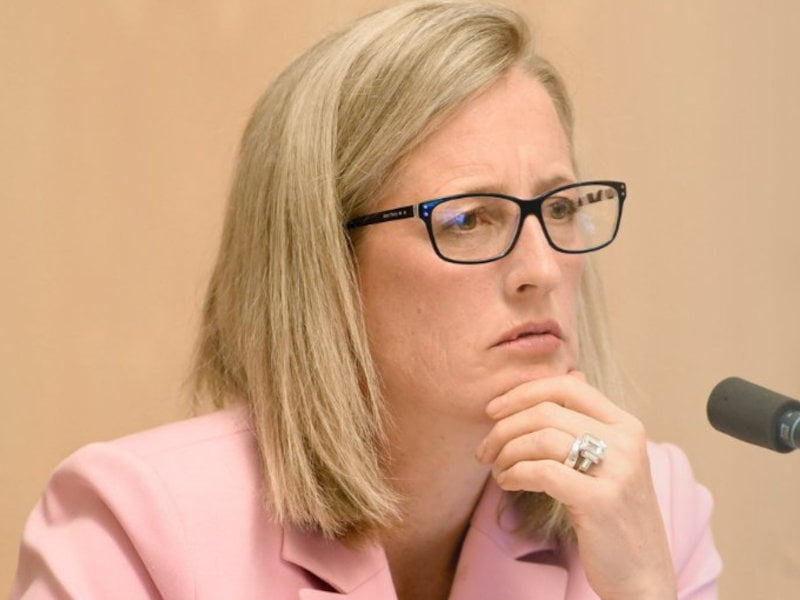The federal government’s main technology suppliers have significant gender pay gaps, with some well above the industry averages and going backwards, newly released transparency data shows.
Tuesday’s data reveals that overall the tech industry is closing its gender pay gap faster than the national rate, but it remains a chasm at almost double the economy wide mark and home to some large outliers.
Microsoft partner Data#3 and favoured tech policy contributor the Boston Consulting Group have median gender pay gaps of 32 per cent and 34 per cent respectively, while Oracle and Infosys sit well above their industry average.

According to the second year of data published by the Workplace Gender Equality Agency (WGEA) covering last financial year, a host of other hardware, software and tech service suppliers have median gender pay gaps favouring men of around 15 per cent.
It is three times the five per cent plus or minus margin that WGEA considers to be neutral.
Vendors SAP, Amazon Web Services and IBM are all around 15 per cent median gender pay gaps, as are tech services suppliers Accenture, Scyne, EY, Capgemini and Deloitte.
Not all the tech suppliers could be compared to the WGEA’s previous data for 2022-23. Most that could improved slightly but others went backwards, including Indian giant Infosys’s median gender pay gap growing almost 3 per cent.
In the Professional, Scientific and Technical Services industry most supplier fit into, the midpoint of the median gender pay gap is 15.4 per cent, with the gap closing by 0.7 percentage points (pp) over the year.
It is a faster improvement than the economy-wide 0.2 pp rate, but the industry has a long way to go with a gender pay gap still almost twice as large as the national midpoint of 8.9 per cent.
Progress across the board is also slow, with the WGEA data showing over half of all employers still pay men over 12 per cent more than women and, Australia wide, women still earn an average of $28,425 per annum less.
Minister for Women Katy Gallagher said there is more to be done but the progress is encouraging and she expects overall indicators to improve.
“The important take outs for me was that more employers reduced their gender pay gap this year, the size of the gaps are coming down and, importantly — which was part of the reason why we wanted this data out there — we’re seeing more and more employers engage in what’s happening in their businesses themselves,” Senator Gallagher said.
“[Businesses are] engaging with staff but are also doing some analysis about what’s driving some of those outcomes across their companies.”
With the transparency data and analysis now flowing, Senator Gallagher said the next step is more action through the government’s amendments to gender equality laws, currently before the Senate.
Recommended by a 2021 review, the change will require employers with 500 or more employees to select and meet gender equality targets and report on their progress to the Workplace Gender Equality Agency.
Failure to comply could see the company named and shamed and made ineligible for federal government work. For the large tech suppliers, it could see some frozen out of the federal government’s $15 billion annual tech spend.
A senate committee has already backed the bill if more guidance is added, but parts of industry have pushed back, including employer lobbies the Ai Group and the Business Council of Australia.
The opposition voted against the bill this month, warning it will hand too much power to the minister to set targets and rules related to them and add a new compliance burden to around 1600 companies.
Senator Gallagher said in addition to the bill, the government is doing more work on procurement as an equality lever.
“We are looking at how we can… understand a little bit more about how much procurement through government goes to women or women-owned businesses,” she said.
Senator Gallagher, also the Manager of Government Business in the Senate, called on the opposition to support the targets bill on Tuesday.
“If Peter Dutton cares about women and women in work and equality, then I would say, today he should say he supports that bill and go back to the position he’s had for the last few years.”
Last year, the federal government stopped short of of setting minimum targets for the participation of women in its major outsourced technology projects, despite mandating them for construction work.
Do you know more? Contact James Riley via Email.


Are we comparing pilots and cabin staff again? Or C-Suites and HR departments?